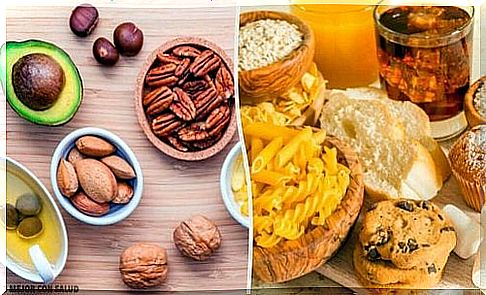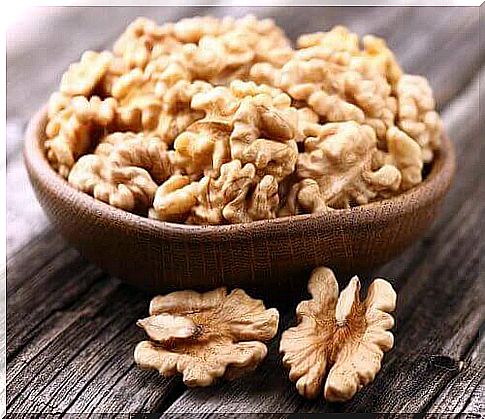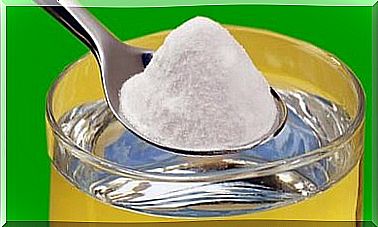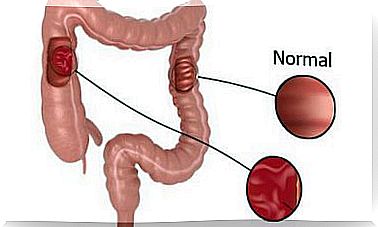5 Myths About Carbohydrates That You Shouldn’t Believe
The problem with losing weight is usually not carbohydrates per se, but which carbohydrates you eat. There are also numerous myths about carbohydrates.

Although they are often irresistibly delicious, high-carbohydrate foods can make losing weight particularly difficult. There is no question that they increase the risk of developing cancer, heart disease or diabetes. But not all carbohydrates are created equally bad. You shouldn’t believe these myths about carbohydrates.
There are many sources on the internet claiming that carbohydrates make you sick and fat. Others claim that carbohydrates are extremely important to a healthy diet.
So we ask ourselves the question: are there good carbohydrates or not? We take a closer look at some of the myths about carbohydrates .
Carbohydrate Myths
1. All carbohydrates make you fat
When you eat foods high in carbohydrates, the body breaks them down into sugar. When the level of glucose in the blood rises, the pancreas makes more insulin.
In this way, the cells can absorb glucose and convert it into energy. However, insulin is also involved in the creation of fat reserves. This is why carbohydrates are often associated with weight gain.
However, not all carbohydrates are the same. Just imagine: an apple and a donut both contain about 25 grams of carbohydrates.
Which of these foods will make blood glucose levels rise faster? Right, the donut.
In contrast to the apple with 4.4 g of fiber, the donut only contains about 0.8 g of fiber. They help slow down the absorption of glucose.
Thanks to its fiber, the apple will keep you full longer. That’s the secret behind good carbohydrates.
So it is actually true that the type and quality of carbohydrates affects how your body reacts to them.
2. It is not natural for humans to eat carbohydrates

Many nutritional concepts are based on the assumption that humans do not naturally eat foods rich in carbohydrates.
However, the percentage of carbohydrates in the diet has a lot to do with where people live.
For example, the Inuit usually had little access to fruits or grains. As a result, their diet usually contained hardly any carbohydrates. But whale skin, walrus liver, berries, roots and seaweed also contain carbohydrates. And Inuit also ate these foods when they were available.
How many and which carbohydrates people ate in the past mainly depended on external circumstances. The forms of nutrition differ greatly between the different cultures.
3. Losing weight is only possible with ketogenic diets

Many people believe that fewer carbohydrates will automatically lose weight. Of course, switching from a high-carbohydrate diet to a low-carb diet initially leads to weight loss.
However, just eating fewer and fewer carbohydrates in order to lose weight faster does not help.
In many cases, a ketogenic diet leads to weight loss only because the people concerned are consuming fewer calories. Another reason could be that you are eating more protein and fiber, or simply eating less overall than usual.
For some people, the low carb diet is not as successful. Because if there is a lack of good carbohydrates, the cortisol level in the blood rises.
While this is a normal process, increased cortisol production can be harmful. Here are some risk factors:
- Dysfunction of the adrenal glands
- too little sunlight
- stress
- irregular sleep pattern
It is important to emphasize that if you cut carbohydrates without eating healthy and changing your lifestyle , you will not automatically lose weight.
4. Too few carbohydrates cannot harm anyone

While many people are very comfortable with a low-carb diet, it can be bad for their health.
For example, during pregnancy it is important to consume enough carbohydrates. Only in this way can the child’s brain develop properly. In addition, a low-carbohydrate diet is often accompanied by a higher protein intake.
If proteins make up more than 25% of the calories in food, there is a risk that the baby will be born underweight. In addition, the risk of child mortality around the time of birth is increased.
In athletes, a low-carb diet can lead to decreased performance, weight gain or even a longer recovery time in the long run.
If you have an underactive thyroid and are not getting enough good carbohydrates, it will lower your insulin levels. Your body can then not convert the inactive hormone T4 into the active hormone T3.
Therefore, the symptoms of hypothyroidism can appear suddenly. In addition, your intestinal flora can be disturbed, which leads to various problems, from being overweight to skin diseases.
5. Low carb diets are dangerous and ineffective

A diet that avoids bad carbohydrates is very effective in the following cases:
- Obesity
- Type 1 and 2 diabetes
- Metabolic syndrome
- Polycystic Ovary Syndrome
- Brain trauma
- epilepsy
- Alzheimer
- Parkinson’s
- Anxiety disorders
- depressions
Many of these conditions may be caused by ingesting refined (bad) carbohydrates. However, it is important not to rate all carbohydrates equally. As we’ve seen, there are many myths about carbohydrates, and they’re not all true.
Take a little time and figure out how to reduce bad carbohydrates in your diet. Find out more about carbohydrates and include more good carbohydrates in your diet.
When in doubt, your doctor can help you decide which diet is best for you. Get detailed information about carbohydrates.









